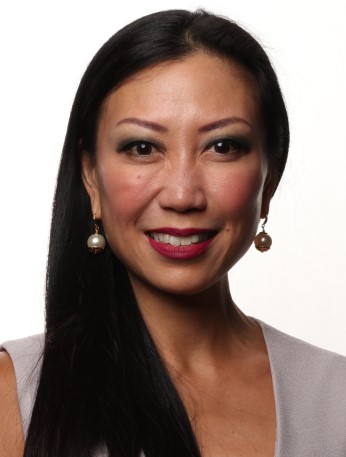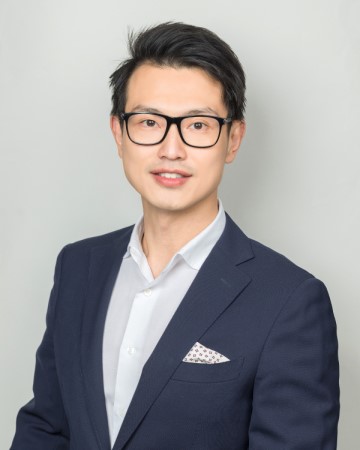 Prof Carolyn Lam Prof Carolyn Lam
Professor, Duke-NUS Medical School
Senior Consultant, National Heart Centre Singapore | Prof Carolyn Lam is a Professor at Duke-NUS Medical School and Senior Consultant at the National Heart Centre Singapore specialising in heart failure and recognised globally for expertise in heart failure with preserved ejection fraction. In the field of MedTech, she is co-founder of Us2.ai, an award-winning startup dedicated to the automation of the fight against heart disease by applying artificial intelligence to echocardiography (ultrasound of the heart).
Prof Lam is a world-renowned clinical trialist, with her work as part of the global steering committee of the PARAGON and EMPEROR-Preserved trials contributing to the first FDA-approved treatment for HFpEF as well as the first robustly positive outcomes trial in HFpEF to date. For more details on the treatment, please visit: https://www.ajmc.com/view/entresto-wins-first-fda-nod-in-hard-to-treat-type-of-heart-failure
Prof Lam’s leadership in the field is recognised in her appointment to the 2021 European Society of Cardiology Heart Failure Guidelines Task Force. She is a recipient of the Singapore National Medical Research Council Clinician Scientist Award (Senior Investigator category), Founding Programme Lead of A*STAR’s Asian neTwork for Translational Research and Cardiovascular Trials (ATTRaCT), Principal Investigator of ASIAN-Heart Failure (ASIAN-HF; a multinational study across 11 Asian countries), and Executive Committee member/ lead of multiple global clinical trials.
Prof Lam has published >560 articles in journals including NEJM, JAMA, Lancet, Circulation, and European Heart Journal; and has been recognised in the Clarivate Highly cited Researcher 2021-2023 (source: https://www.webofscience.com/wos/author/record/ABD-6810-2021) and as a World Expert by Expertscape’s PubMed-based algorithms (top 0.1%o f scholars writing about Heart Failure over the past 10 years (source: https://www.expertscape.com/ex/heart+failure). She is lead author of the chapter on HFpEF for Braunwald’s Heart Disease: A Textbook of Cardiovascular Medicine, 12th Edition and her achievements were recognized in nominations as the European Society of Cardiology (ESC) Rene Laennec Lecturer in Clinical Cardiology in 2022, Heart Failure Society of America (HFSA) 2023 Mihai Gheorghiade Lectureship and Singapore Cardiac Society Lecturer 2024.
Prof Lam serves as Deputy Editor of JACC and JACC: Heart Failure and previously as Associate Editor for Circulation and the European Journal of Heart Failure. Finally, she is familiar to the Singapore public as the Resident Doctor of the health television programme “Body and Soul” by MediaCorp Singapore for 10 seasons, and familiar to the medical community at large as the host of the weekly worldwide podcast “Circulation On The Run”.
|
 A/Prof Daniel Ting
Senior Consultant, Vitreo-Retinal Surgeon
& Chief Digital and Data Officer,
Singapore National Eye Centre
Associate Professor, Duke-NUS Medical School
Director, Artificial Intelligence Office,
Singapore Health Service Head,
Artificial Intelligence and Digital Innovation,
Singapore Eye Research Institute
Adjunct Clinical Associate Professor,
Innovation Mentor, Byers Eye Institute,
Stanford University
| A/Prof Daniel Ting is a senior consultant vitreo-retinal surgeon working in the Singapore National Eye Centre (SNEC), an Associate Professor with Duke-NUS Medical School and an Adjunct Clinical Associate Professor and an Innovation Mentor at Stanford University. He is also the Director of Singapore Health Service (SingHealth) AI Office, SNEC Chief Data and Digital Officer, and the Head of AI and Digital Innovation in Singapore Eye Research Institute (SERI). In 2017, he was US- ASEAN Fulbright Scholar visiting the Johns Hopkins University Fulbright Scholar to share his expertise in AI and big data in medicine. In addition to that, his research focus spans across not only on the technical aspect on machine learning, deep learning, large language models, explainable AI, privacy preserving technologies, but also safe, responsible and ethical clinical AI applications. He is also involved in several international consensus reporting guidelines such as STARD-AI, QUADAS-AI and DECIDE-AI.
To date, A/Prof Ting has published >250 publications on peer reviewed, book chapters, educational articles and conference abstracts. Of those, 45 were published in high impact journals (IF >10) such as JAMA, NEJM, Lancet, Nature Medicine, Nature Biomedical Engineering, Lancet Digital Health, Progress in Retinal and Eye Research, Diabetes Care, Nature Digital Medicine, Ophthalmology and etc. As of January 2024 (Google Scholar), his current H index: 58, i-10 index: 148 with total citations of >16696. One of his COVID-19 articles was published in Nature Medicine (1st author), entitled “Digital Technology and COVID-19” has so far been cited for >1100 times with >110,000 views, and also been referenced by the US Center for Disease Control and Prevention (Source:https://blogs.cdc.gov/genomics/2020/04/06/using-digital/). He has received a total of S$100M research grants, in which S$20M as a principal investigator, and S$80M as co-investigators on AI and digital innovation related projects in health.
A/Prof Ting serves in several leadership positions at the different AI and eye societies, including the American Academy of Ophthalmology AI and Retina Ophthalmology Technology Assessment committees, and he also chairs the AI and Digital Innovation Standing Committee for the Asia-Pacific Academy of Ophthalmology and Asia-Pacific Vitreo-Retinal Society. He also serves in numerous advisory and editorial boards in the top-tiered digital and medical journals, including Lancet Digital Health, Frontiers in Medicine, Frontiers in Digital Health and Asia-Pacific Journal of Ophthalmology; Section Editor in British Journal of Ophthalmology and Editorial Board Member in Ophthalmology, Ophthalmology Retina, Ophthalmology Science, British Journal of Ophthalmology, Asia-Pacific Journal of Ophthalmology and Retina.
For the accomplishment, A/Prof Ting was recognised by many top-tiered international AI and ophthalmology societies in winning many prestigious scientific awards, including Tatler Asia Gen T Award (2021), Singapore National Medical Research Council Clinician Scientist Award - Investigator category (2021), Asia-Pacific Academy Ophthalmology (APAO) Nakajima Award (2021), Asia-Pacific Vitreo-Retinal Society (APVRS) Ian Constable Award (2021), MICCAI OMIA Prestigious Achievement Award (2020), ARVO Bert Glaser Award for Innovative Research in Retina (2020), USA Macula Society Evangelos Gragoudas Award (2019), APAO Young Ophthalmologist’s Award (2018) and APTOS Young Innovator Award (2017).
In 2022 and 2023, A/Prof Ting is included in the World’s Top 100 Ophthalmologists Power list by the Ophthalmologists; and the World’s Top 2% Scientists by the Stanford University world ranking. In 2021, he was ranked 1st globally in the deep learning over the past decade (2010 – 2021), and has since been consecutively ranked top 10 worldwide for AI, machine learning and deep learning in science, engineering and health till to date. |